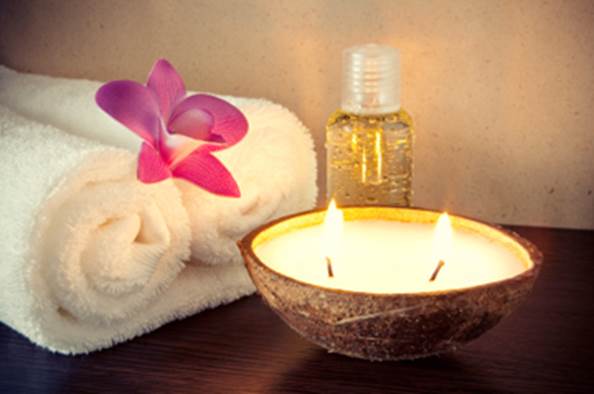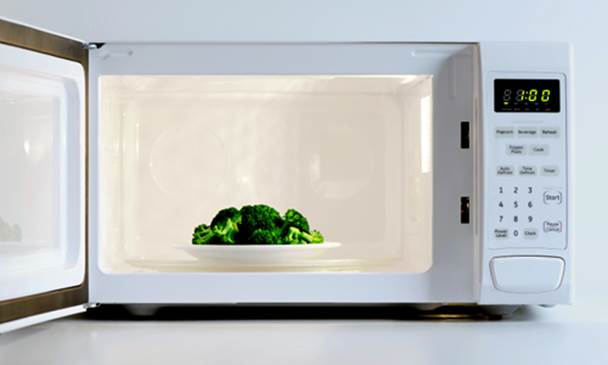You do your best to lead a healthy
lifestyle, but you could be jeopardizing your health without even knowing it.
Working at a desk job
Office workers take note – sitting for
prolonged periods can shorten your life span. A new Australian study determined
that people who sit for 11 or more hours a day have a 40 per cent higher risk
of death from any cause compared to people who sit for less than four hours a
day. Those who sit between eight and 11 hours have a 15 per cent greater risk.
And regular exercise doesn’t help.

Office
workers take note – sitting for prolonged periods can shorten your life span
According to Dr Hidde Van Der Ploeg, study
co-author, our sedentary lifestyle is to blame. “If you have a sitting job and
you drive to and from work, watch TV all evening or use the computer – that’s a
lot of sitting,” he says. The problem is when we sit down, we don’t contract
our muscles – an action required to clear our bloodstream of glucose and fats.
The long-term consequences include obesity, circulatory problems, a slow
metabolism and an increased risk of cancer.
Healthier
alternative
Break up your sitting time as much as
possible. Walk to the printer; stand up and stretch every hour; walk at
lunchtime; talk face-to-face to workmates rather than send emails. Even
standing on the bus will make a difference.
Going on a detox diet
Diets designed to rid your body of toxins
often require fasting, eliminating entire food groups or consuming only juices.
According to Dr Katherine Hanna from the School of Exercise and Nutrition
Sciences at Queensland University of Technology, these diets are fraught with
potential health issues. They not only omit key sources of vital nutrients,
they can also disrupt your metabolic rate and flush out good bacteria with bad.
“These diets usually focus on the short-term rather than taking a sensible
approach to long-term weight maintenance,” says Hanna.

According
to Dr Katherine Hanna from the School of Exercise and Nutrition Sciences at
Queensland University of Technology, these diets are fraught with potential
health issues.
Healthier
alternative:
Stick to a balanced diet as recommended by The
Australian Guide to Healthy Eating and avoid foods with too much added fat,
sugar and salt. Also, drink plenty of water.
Sprucing up your home with air freshener
A recent US report determined that scented
sprays, candles, oils and gels may be far worse for you than any nasty smell.
These products release chemicals known as volatile organic compounds (VOCs),
which can trigger allergy symptoms and asthma attacks. Even products marked
‘all natural’ or ‘organic’ may contain VOCs which, released in high doses, can
cause headaches and dizziness.

Scented
sprays, candles, oils and gels can trigger allergy symptoms and asthma attacks
A different US study found that many
commonly used air fresheners contained phthalates, chemicals linked to hormonal
disruption.
Healthier
alternative:
Make up bouquets of cloves and cinnamon to
leave out in small bowls, add a few drops of an essential oil to purified water
in a spray bottle to use as mist, or try the most natural option of all – open
a window.
Microwaving in plastic
Chemicals used in manufacturing plastic
containers or plastic wrap can leach into the food they’re encasing when heated
in the microwave. Of chief concern are Bisphenol A (BPA) and phthalates, which
have been linked to breast cancer and hormone dysfunction.

Chemicals
used in manufacturing plastic containers or plastic wrap can leach into the
food they’re encasing when heated in the microwave
Although Dr Ian Musgrave, pharmacology
lecture at the University of Adelaide, says the amount of BPA is way below the
risk threshold, we should be cautious of using old containers. “If the plastic
starts to degrade or break down, the likelihood of material leaching out is
much higher,” he says.
Healthier
alternative:
Only use containers labelled ‘microwave
safe’. If still in doubt, heat your food and beverages in ceramic or glass.
Squeezing into skinny jeans
Super-snug clothes like skinny jeans,
compression underwear or tight belts all carry the risk of a potentially
painful side effect known as meralgia paresthetica, caused by continuous
compression of a nerve running from the pelvis into the outer thigh. “The
symptoms are numbness, tingling, burning pain and shooting sensations,” says
Emeritus Professor John Willoughby from Flinders University. The result may be
permanent nerve damage.

Super-snug
clothes like skinny jeans, compression underwear or tight belts all carry the
risk of a potentially painful
Healthier
alternative:
Wear loose-fitting garments for several
weeks to ease the pressure. Avoid wearing anything too tight.
Getting a gel manicure
This popular procedure might give you a
polished look that lasts for weeks, but you could end up with something a lot more
permanent such as skin cancer. The lamps used to cure the gel polish are
exposing your hands to UV radiation. According to a 2009 US case study, two
women who developed non-melanoma skin cancer on their hands had both been
frequently exposed to UV nail lights, even though neither had a personal or
family history of the disease.
Healthier
alternative:
Apply a broad spectrum SPF 30+ sunscreen to
your hands before placing them under the UV light. Better yet, seek out a salon
that uses LED lights instead.
Using a mobile phone
The latest science holds that there’s a
possible link between mobile phone use and brain cancer, with studies
suggesting that intensive use (more than half an hour every day for at least
10years) increases tumour risk. Although no definitive effects have yet been
proven, studies are ongoing.

Using
a mobile phone (more than half an hour every day for at least 10years)
increases tumour risk
Professor Andrew Wood, research director at
the Australian Centre for Radiofrequency Bioeffects Research, points out that
all the research to date has been on first-generation systems – and we’re up to
4G now. “Technology is moving on,” he says. “It’s now using new frequencies,
different positions of antennas, all kinds of things.” So we’d be wise to keep
our guard up. “Where there’s slight doubt of safety for something that is so
prevalent in the community, you would want to assume some sort of precaution,”
he advises.
Healthier
alternative:
The further you hold the phone away from
your body, the more you reduce your radiation exposure. Use a hands-free
headset, a retro handset, the speakerphone, or be extra safe and text, but not
while driving, of course.
Using spot-on flea and tick pet treatments
Although convenient, these formulations
contain pesticide, which is harmful to animals and humans alike. “Spot-on
treatments are neurotoxins,” states Patty Walcott, founder of Healthy Pets
Naturally. “They destroy the nerve of the insect – that’s how they kill them.
And while they say on the pack that the product only gets into the top tissue
layer of the animal’s skin, that’s not true.”
In studies, traces of the products have
been found in the animals’ organs, intestinal tracts, stools and urine. Side
effects include seizures, hypersensitivity, hormone disruption and possibly
cancer, and other household animals exposed to these chemicals are also at
risk. Equally worrying is the US Environmental Protection agency’s finding that
fipronil, the main flea-killing ingredient, is a “possible human carcinogen”.
Their concern has led to a reassessment of labeling language and dosage
recommendations.
Healthier
alternative:
While most tick collars or oral flea
medications are safer options, Walcott prefers such natural methods as bathing,
combing, electronic tick repellents and using cedar oil sprays and shampoos
formulated especially for pets. “Remember, you have to treat the environment,”
she adds, “so spray furniture and pet bedding with cedar oil, add it to the
wash, put it in floor cleaner, and vacuum a lot.”